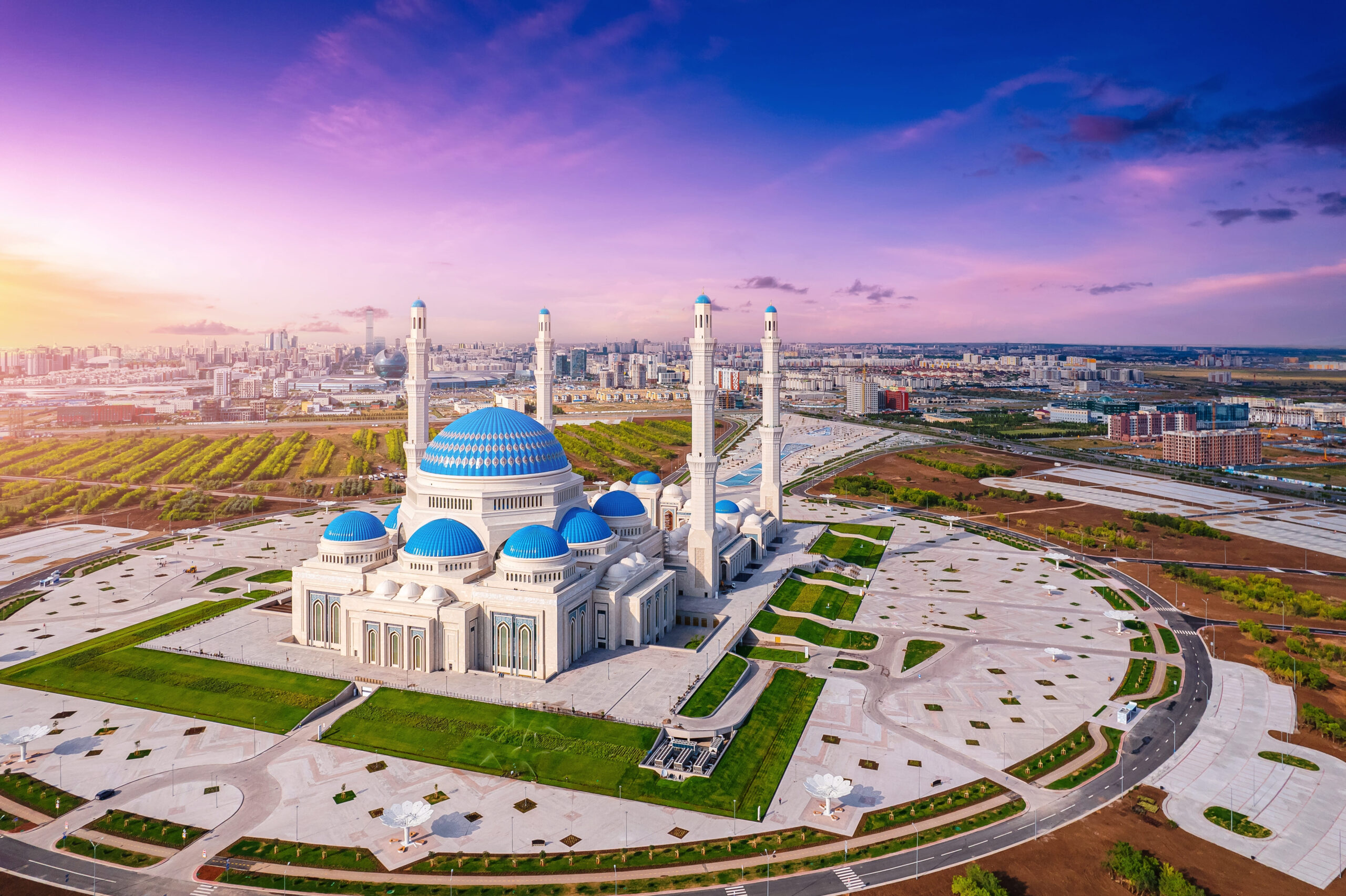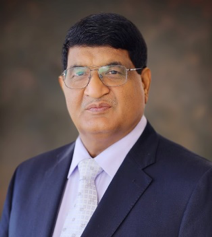Rapid advancements in science, technology, and artificial intelligence have fundamentally transformed both our practical and intellectual lives. Religion, too, has been affected by these changes.

Grand Mosque in Astana. Photo credit: Shutterstock.
Traditionally, it was thought that science, economics, and governance were the cornerstones of modernity, with religion being excluded. However, the rise of traditional religions and the decline of secularism have proven this perception wrong; religion has regained its influential role globally.

Dr. Muhammad Zia-Ul-Haq.
Prominent American theologian Harvey Cox noted in the 1980s that the resurgence of traditional religions and the challenges of urban civilization are key features of our era. Today, the challenge lies in pluralism rather than secularism. This has led to an increased focus on racial and religious identity within multicultural cities.
In response to rising globalism and migration, religion is flourishing even as ethnic identity weakens. Religion remains a critical force in human life, capable of fostering peaceful community relations when given the opportunity.
Religion was, is and will remain a crucial force in human life.
The facts mentioned above indicate that recognizing religious diversity is crucial for achieving peaceful co-existence among followers of various religious traditions. While religion can be a significant tool for conflict resolution, it is sometimes perceived as a source of conflict. It is part of the solution, yet often portrayed as a problem. The 21st century is marked by the politics of identity. Modern institutions are primarily procedural, capable of answering “what?” and “how?” but often inadequate at addressing questions of identity such as “who?” and “why?” When politics shift from ideology to identity, people naturally gravitate toward religion, which serves as a rich repository of human wisdom on questions like “Who am I?” and “What narrative am I a part of?”
To underscore the importance of religion in contemporary human life, Kazakhstan has established the Congress of Leaders of World and Traditional Religions in Astana. This forum has gained international recognition and has become a hallmark of Kazakhstan’s identity. It serves as tangible evidence of the Kazakh government’s commitment to promoting peace, harmony, humanism, tolerance, and religious diversity.
Experts concur that the future of our society, as well as peace and stability, hinges on the widespread adoption of these ideals. Kazakhstan stands as a unique example of a nation making serious efforts to embrace these values. The congress provides an interactive platform for representatives of various world religions. It instructs people of diverse nationalities and faiths on how to coexist harmoniously and engage in constructive dialogue. The teachings emphasize respect and responsibility, both to a higher power and to historical context, aimed at improving life in an increasingly interconnected global community.
The congress convened its seventh session from September 14-15, 2022. At its conclusion in Astana, a formal declaration was issued by spiritual leaders from world and traditional religions, politicians, and heads of international organizations. Through this declaration, they articulated their collective desire for a just, peaceful, secure, and prosperous world.
Participants of the Congress emphasized the importance of shared values in both the spiritual and social development of humankind. They acknowledged the urgent need to counter and overcome various forms of intolerance, including hate speech, xenophobia, discrimination, and conflicts arising from ethnic, religious, and cultural differences.
In recognizing the richness of religious and cultural diversity, the religious leaders pointed out that acts of charity, compassion, mercy, justice, and solidarity are essential for bringing people and societies closer together. They underscored the value of education and spirituality in personal and interreligious development. Additionally, they affirmed the important roles and rights of women in society, stating that material inequality often gives rise to discontent, social tension, conflict, and crisis.
In light of the challenges facing the world in the post-pandemic era—such as climate change, poverty, hunger, organized crime, terrorism, and drug-related issues—the participants strongly condemned all forms of extremism, radicalism, and terrorism, which lead to religious persecution and undermine human life and dignity.
The religious leaders at the congress voiced serious concern over the increasing number of migrants and refugees worldwide who are in dire need of humanitarian assistance and protection. They expressed a strong commitment to fostering conditions conducive to dialogue and reconciliation among conflicting parties. The leaders welcomed all initiatives on international, regional, national, and local levels, particularly lauding the efforts of religious figures in advancing interreligious, intercultural, and intercivilizational dialogue. They further signaled their intent to enhance cooperation among religious communities, as well as international, national, and public institutions, and non-governmental organizations in the post-pandemic landscape.
Participants reaffirmed the role of the Congress of the Leaders of World and Traditional Religions as an international platform for interreligious dialogue, welcoming representatives from a wide array of religions, confessions, and creeds. They emphasized that the Congress offers an invaluable opportunity for taking more specific steps to broaden dialogue across religious, cultural, and civilizational lines.
The experience of Kazakhstan underscores the pressing need for dialogue in today’s transitional world. As urbanization and migration continue to accelerate, the quest for a more sustainable and equitable development pathway becomes increasingly critical. The global security landscape is undergoing significant shifts, presenting both tremendous opportunities and considerable risks. We stand as the first generation with the means to eradicate global poverty and potentially the last one capable of mitigating climate change before it’s too late. Concurrently, we must be cognizant of the considerable risks we face, including civil conflicts, terrorism, organized crime, drug trafficking, and health crises, which endanger millions and know no national boundaries.
In many countries that are often cited as models of integration, we are witnessing a rise in divisive politics. Both traditional and non-traditional religious leaders have a crucial role to play in these challenging times. They can serve as a unifying force, offering value-based principles that hold communities together and create common ground for peacemaking and problem-solving. This can be achieved through fostering dialogue, using their spiritual authority to encourage individuals to act humanely, and promoting shared values. These values are enshrined not only in the Universal Declaration on Human Rights and the International Covenant on Civil and Political Rights but also resonate with the teachings of all major world religions.
Religious leaders bear the responsibility of educating their followers about the true essence of reconciliation, understanding, and mutual respect. They are obligated to condemn actions when individuals commit crimes in the name of their faith. It is crucial for everyone to understand that crimes committed under the guise of religion are, in fact, crimes against religion itself.
The author is Dr. Muhammad Zia-Ul-Haq, Professor and Director General of the Islamic Research Institute at the International Islamic University (Pakistan).
